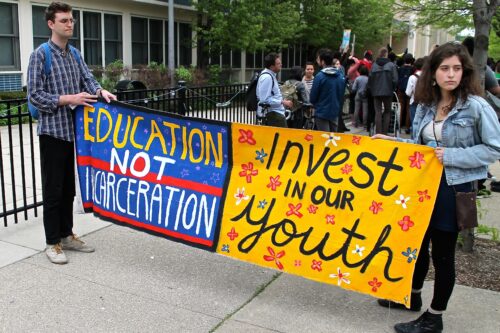Image courtesy of Flickr.
Arrests and incarceration have been pertinent issues in society for decades. Destiny Tolliver, an assistant professor in the pediatrics department at the Boston University Chobanian & Avedisian School of Medicine, has recently discovered a startling correlation between arrests and health. Tolliver and her team analyzed data from the National Longitudinal Study of Adolescent to Adult Health, examining cohorts from 1994 to 2018. They gathered information about participants’ sex, race, and ethnicity, as well as the timeline and occurrence of arrests and different physical and mental health measures, including clinical biomarkers for diseases such as hypertension and diabetes.
Her analysis found that arrests made before the age of twenty-five were associated with higher rates of suicidal thoughts, depression, and worsening general health scores. On top of that, youth arrest and related policies didn’t impact all communities equally. “There are well-documented racial and socioeconomic disparities in who experiences arrest, with Black children and children in lower-income households disproportionately impacted,” Tolliver said.
Compounding the problem is the minimum juvenile prosecution age, which is currently only ten for the state of Connecticut. “I think Connecticut can do more in this area by raising the minimum age at which children can be prosecuted in the juvenile court system to at least fourteen years of age, and instead focus on diverting youth to health-promoting systems in their communities,” Tolliver said.
So what’s next? Many states have already implemented changes to decrease the number of young people who are arrested. Tolliver hopes to research the effects of these modifications on youth health to create a model for other states to follow.

